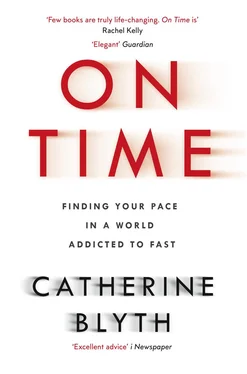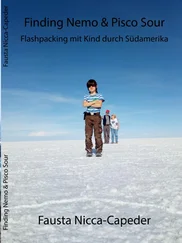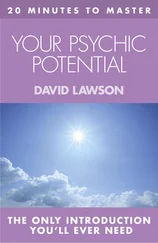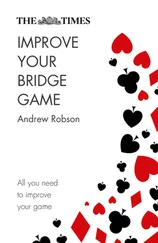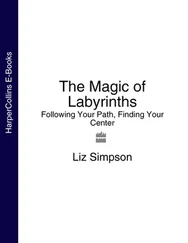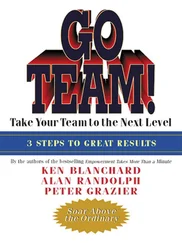Today I have no house room to spare for procrastination; the space is occupied by two charming time thieves, my daughter and my son. After their arrival life entered a reverse time zone. Like many new parents, we battled to meld competing schedules: for sleep, work, eating and the endlessly streaming coughs and colds. Amid this biological and logistical warfare, I often yearned, late at night, for a 48-hour day. Except this was pretty much the hell I was already living. There was the hoped-for day – the one that I rose each morning intending to enjoy – and there was the reality: buggered up by delay, disruption and incessant, insidious distraction.
Friends agreed that if there was one thing that might improve our quality of life it would be a time machine. But I had one of those already, vibrating in my pocket, and another on my desk. My husband had three. Did they help?
No, what I needed was two of me: one to accomplish everything that I tried to do, and another to parry the demands that routinely torpedoed my plans. Unfortunately I could not afford a clone or a wife. So I was stuck with busy.
Then I discovered the extent to which busy is a state of mind. It makes time our enemy by turning us into the servants of fast.
When I told people that I was writing about time, most assumed that my true subject was productivity – in other words, how to squeeze more juice from our bitter lemons. It is not. It is freedom.
Talk of free time is usually a gripe. As in, Where is it? And why does it go so fast? I try to answer both questions. But what interests me most is freeing time – the verb.
We treat time as a thing: to spend, save, waste, lose or kill. But time is not a commodity: it is a dimension of experience and in the final analysis, it is all we have – it is our only vehicle to be alive in. It is also a wonderfully adaptable instrument, like a compass, that humanity invented to organize itself. It can help us navigate this fast-forward world, if we appreciate how it works.
Book after book promises to salve our pains with time. Peel back their surface differences, however, and most are transfixed by the mantra of doing or getting more. Arguably, it is the compulsion to consume time, and then to produce evidence that it has been consumed, that causes many of our problems, not just in how it interferes with our motivation, but in how it makes us inattentive, passive and parsimonious.
This book offers neither a New Age manifesto nor a recipe for speeding up. Instead it sets out how our sense of time shapes our life, and how little it takes to improve its quality – or ruin it. It may help you to work time harder. But it is also a call to savour the time you have. How you spend your one-stop trip to earth is up to you. Still, many would benefit from more of that vital pastime, doing nothing. How much is lost if you never forget time? Like Friedrich Nietzsche, who repined, not long before he went mad: ‘One thinks with a watch in one’s hand even as one eats one’s midday meal while reading the latest news of the stock market.’
I wanted answers to the big questions that productivity guides ignore. As captivating as the spangled wonders of atoms and stars are, great mysteries lie in the muddy foothills of everyday time. Why does it crawl when you ache for it to hurry? Why do we procrastinate when we can least afford it? Why is each hour of the day different? Holly Golightly really is not lying in Breakfast at Tiffany’s when she protests, after a barman refuses to serve a third cocktail (it is not yet noon), ‘But it’s Sunday, Mr Bell. Clocks are slow on Sunday.’ These complexities are fascinating, and also uncover practical tools that will let you spend less energy on managing time, the better to luxuriate in it.
Your brain is always playing games with time. Be aware of its tricks and you can reset the pace. Read on and you will learn plenty about your mind and body; how fast food and bright colours change your tempo; why deadlines can kill, but inserting the words ‘if’ and ‘then’ into a plan ups its odds of success; how autonomy takes the stress out of time pressure and cunning time thieves take your good intentions for a walk; which activities best suit particular hours of the day; how we turn into habit zombies; ways to speed up, or slow down, or become an early bird; why you sleep when you do; and how to harness momentum, by making time simpler.
Feel free to skip ahead to whichever chapter seems most relevant. I have tried to satisfy not only readers who like to curl up with a mind-expanding topic, but also those who read guerrilla-style, snatching what they need on the run.
Philip Larkin wrote:
This is the first thing
I have understood:
Time is the echo of an axe
Within a wood.
It seems that way, if you let it. All too easily we overlook the role that our attitude towards time plays in how life unfolds. But raise our awareness and with minute changes we can transform our outlook. And it is worth it.
In Dante’s Divine Comedy , Virgil drags Dante up the mountain to Paradise, away from the terrible waiting room of Purgatory, as fast as he can: ‘He who best discerns the worth of time is most distressed whenever time is lost.’ Those who best discern time’s worth are generally those who have brushed the crust of mortality – the survivors, the bereaved, those staring down the barrel of a terminal diagnosis. Like my parents’ friend, Henrietta, who described the gift she had received, after safely emerging from a life-threatening illness. ‘My husband and I became acutely aware how little time there is. There is no point deferring. When we wanted to do something, we just did it. It was the best time in our marriage.’ Their joy lasted two years, until his sudden death. His final words to her were, ‘That was a really lovely day.’ I would like them to be mine.
Years of my life have been cramped by the inhibiting belief that I did not have enough time. Writing this book reminded me that we can all take greater pleasure from what we have. Why wait until its sands are low? ‘In truth, there is enormous space in which to live our everyday lives,’ wrote Buddhist thinker Pema Chödrön. It is never too late to seek this sense of abundance.
Now is the time of your life. What might happen if you spent your day only on what was necessary or delightful to take you where you want to go? Millions have been inspired by Marie Kondo’s advice to tidy up, and to ditch possessions that do not serve a purpose or spark joy. How much more might we gain from decluttering time?
Imagine a day in which you accomplish everything that you intend, as well as coping with all the unanticipated demands, without getting thrown off track. A day in which you feel one step ahead, not constantly behind, trapped in a reactive cycle that seems to drag you backwards. A day of hours that feel satisfying, not cramped. A day in which the minutes for dull tasks dash by while hours for pleasure meander. A day that exploits the give in time’s elastic, giving you more time off. A day of miracles?
Not a bit. Your definition of time rich might mean working more effectively, or elegantly doing less. Whatever your goal, if you cease to feel like time’s slave then everything improves.
The mistake of rushing is to imagine that your time is not your own. The solution is to live in your own good time, at a pace that suits you. So quit chasing white rabbits. Stop stockpiling self-reproach. Set aside a few minutes, perhaps a few hours, to ignore the clock, and rediscover what time has always been, since the first hominid tracked the day’s passage by the slant of his shadow in the sun: your servant.
Here is a question. Give yourself three seconds to answer. Do not scratch your head, worrying about getting it wrong. There is no wrong answer. You want your first response, because the purpose of this experiment is to open a window into your mind.
Читать дальше
